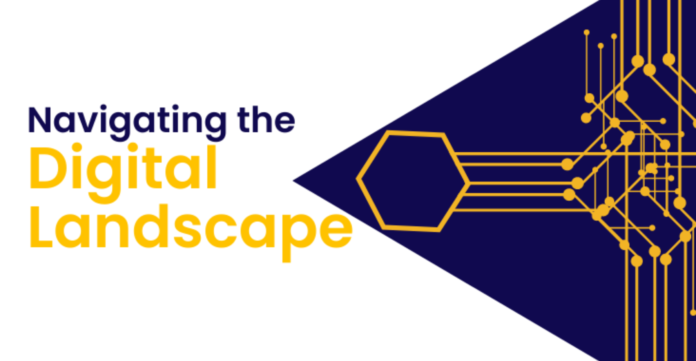In the ever-evolving digital age, where the internet serves as the nexus of global communication, creativity, and information dissemination, online copyright infringement has become a pervasive and multifaceted issue that demands our attention.
In today’s interconnected world, the lines between sharing and appropriating copyrighted content have become increasingly blurred. It is now imperative to delve into the intricate nuances of online copyright infringement, understand its profound implications for various stakeholders, and explore the extensive range of measures being implemented to mitigate and combat this pervasive issue.
Understanding Copyright
Before we embark on our journey through the intricate labyrinth of online copyright infringement, let us first establish a solid foundation of understanding regarding the essence of copyright itself.
Copyright is a legal shield bestowed upon the creators of original works across various domains, including literature, music, art, and beyond. This protection grants creators’ exclusive rights to reproduce, distribute, perform, and display their works, thus affording them control over their creative output.
By incentivizing creators with the potential for financial gain from their works, copyright not only rewards ingenuity but also fuels further innovation and artistic expression.
Online Copyright Infringement: A Web of Complexity
Online copyright infringement, in essence, is the illicit act of copying, distributing, or employing copyrighted material without the rightful consent of the copyright holder. This transgression manifests through a plethora of channels, ranging from the notorious illegal downloading and streaming of copyrighted content to file sharing and the posting of copyrighted material on platforms without obtaining the necessary authorization.
Several factors contribute to the prevalent and complex nature of online copyright infringement:
- The Facile Dissemination of Content: The internet has transformed into an incredibly accessible platform for the instantaneous sharing and dissemination of content, often without due regard for the copyright implications associated with such actions.
- The Veil of Anonymity: The digital realm can often shroud individuals in a cloak of anonymity, emboldening some to disregard copyright laws due to a perceived lack of accountability.
- Ignorance or Misconception: A significant portion of the populace remains unaware of the intricate web of copyright regulations or mistakenly believes that content available on the internet is inherently free for unrestricted use.
Implications of Online Copyright Infringement
The far-reaching repercussions of online copyright infringement cast a long shadow, affecting a multitude of stakeholders:
Creators: Online copyright infringement deprives creators of their rightful earnings, acting as a discouraging factor that may stifle creativity and deter them from embarking on new projects.
Content Industries: Industries such as music, film, publishing, and software experience significant financial losses due to rampant piracy and copyright infringement, potentially endangering their long-term viability.
Consumers: In certain instances, consumers unwittingly expose themselves to substandard or even unsafe pirated content, thereby jeopardizing their interests, security, and overall online experience. Plus, if you have a YouTube channel, you may lose subscribers and even views on your videos.
Legal Consequences: Individuals caught engaging in online copyright infringement may find themselves entangled in legal battles, facing monetary fines and, in extreme cases, imprisonment. Such legal consequences can have lifelong repercussions.
Cultural and Societal Impact: Beyond the financial realm, online copyright infringement also impacts the broader cultural and societal landscape by influencing how we consume and value creative content.
Mitigating Online Copyright Infringement: A Multifaceted Approach
Efforts to combat online copyright infringement are multi-pronged, encompassing a combination of legal, technological, and educational strategies:
Legal Measures:
Governments and copyright holders worldwide are increasingly resorting to legal avenues to pursue infringing parties. Lawsuits have led to the shutdown of numerous notorious piracy websites and actions taken against infringers.
Digital Rights Management (DRM):
Content providers and copyright holders deploy advanced DRM technologies to curtail unauthorized copying and distribution of digital content, safeguarding their intellectual property.
Educational Initiatives:
Raising awareness about copyright laws and their profound implications plays a pivotal role in mitigating unintentional infringement. By educating individuals about their rights and responsibilities, society can foster a culture of respect for intellectual property.
Licensing Agreements:
Copyright holders have the option to license their content for specific purposes, enabling controlled sharing while retaining their legal rights and benefiting financially.
Collaborative Efforts:
Collaboration between content creators, technology companies, and policymakers is pivotal in developing innovative and effective solutions to counter online copyright infringement. By working together, stakeholders can create a more inclusive and sustainable creative ecosystem.
The Road Ahead: Balancing Innovation and Protection
In conclusion, online copyright infringement is a complex and multifaceted challenge with profound implications for creators, industries, and consumers alike. In an ever-evolving technological landscape where new methods of copyright infringement continually emerge, it becomes essential to champion awareness, enforce existing laws, and pioneer innovative strategies to strike a delicate balance between the free exchange of ideas and the preservation of creative works in the digital age.
Upholding copyright is not merely a legal obligation; it is a moral imperative that ensures the sustenance of a vibrant and robust creative ecosystem for all stakeholders involved. As we continue our journey through the digital era, the importance of protecting intellectual property and fostering a culture of respect for creativity remains paramount.
In the coming years, the challenge of online copyright infringement will persist, but it is through our collective efforts, innovative solutions, and a shared commitment to safeguarding creativity that we can pave the way for a digital future that respects and preserves the rights of creators, enriching our society and culture as a whole.

